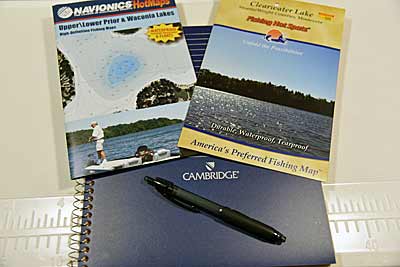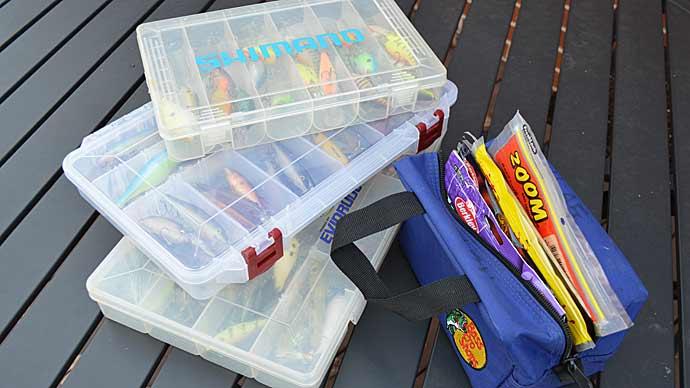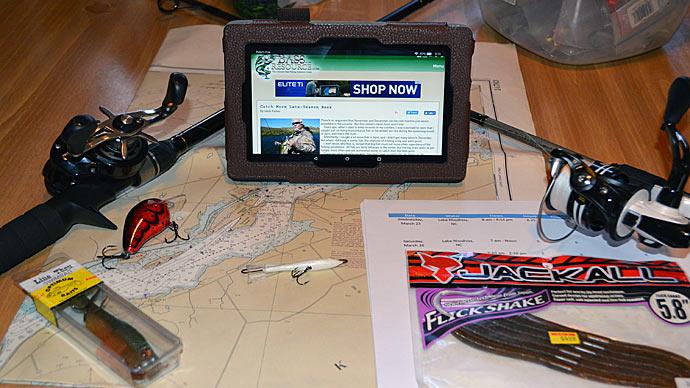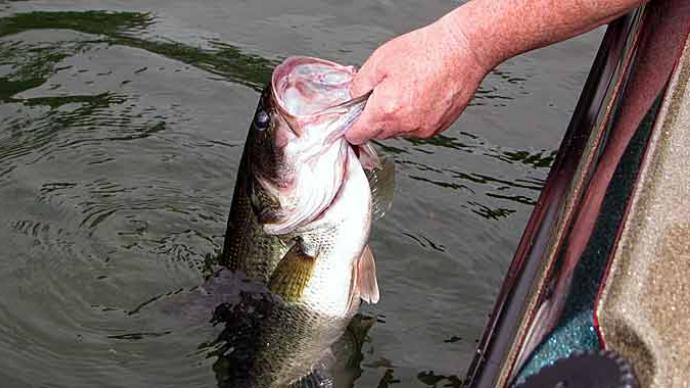
When it comes to the offseason, what are your plans to get ready for next season? I know some fishermen like to turn their attention towards hunting or finish chores that have been neglected for many months from being on the road. For us weekend anglers, not being away from home as much, we should still start to think about next year as well. Whatever your plans, set forth a few ideas that you can get on a list before the season starts again.
Setting Goals
What is it that you want to get done this year? Set some goals to keep you on track. This will maximize what you're trying to get done and help you stay on schedule to accomplish your goals in a timely fashion.
Categorize items on your list, and prioritize the ones that may need extra lead time to complete. Last year I ordered a new Pro Staff boat. This took over nine months to get. Then it was a few weeks later to get it rigged before I hit the water. I missed my first two tournaments of the season before getting on the water. Plan accordingly so you're not left standing onshore when your tournaments start.
Plan Your Tournament Schedule
If you're fishing three tournaments or fifteen next year, get these dates on your calendar and start to prepare for the upcoming season. Have you fished these waters before? What period of the year are these tournaments in, and what will be needed? These are three fundamental questions that you can answer now to start getting ready for the season.
Book Your Hotel Early
If it's a travel event, do you need lodging? If yes, start your search and book your hotel now. Often the prime spots will get booked fast. One crucial question that needs to be asked is, "Are these locations boat-friendly?" Do they have outside plug-ins for charging your boat? Do they have lighted parking lots and cameras to track any activity in the parking lot? All of these are essential points to think about if you're traveling.
There is no greater frustration than to get to your hotel and find out there are limited electrical outlets in the parking lot, or you can't park close enough to your room to be able to run a cord to your boat for your charging needs. If you have not been to these places before, ask these questions before you book, so you're not surprised when you arrive.
Pre-Tournament Lake Breakdown
If the waters I'm fishing are where I have fished before, I'll start my water break down now. If the location is new, I'll start to search to see what I can find out about these locations.
The first thing I'll get is a lake map to see how the water lays out. I'll also turn towards state DNR websites to find their information about these waters. In Minnesota, my home state, our DNR has a wealth of information on file about the lakes and waterways across the state. Lake maps, stocking information, creel results, and netting information are all broken down in one spot.
Google Earth & Fish Smart App
Another helpful resource to get information is Google Earth. Take the time to look up these waters and get an aerial look. You can also use the setting inside of Google Earth to go back in time and look at waters when they were at a lower water level. Try to find the structure that may now be underwater at the regular pool. Use this to your advantage to make notes about these critical areas and write down waypoints that you can import into your boat electronics.
Being a Humminbird user, I also use the Humminbird Fish Smart app on my phone and tablet. I can look at aerial satellite images to help me find and get into critical areas. I can also look at lake maps. Taking the time to look at lake contours allows me to target areas that I think will match up to the period I'll be fishing these waters, helping me identify critical structures that could be holding fish.
In your pre-tournament prep, search local results of past tournaments and what weight it took to win. This will give you an idea of how much weight you will have to work toward when you get on the water and start your pre-fishing for the tournament.
Before the tournament, I'll start to pay attention to the weather conditions in that location. This information gives me a good picture of the lake conditions I'll face before traveling to the lake to start my pre-fishing.
Are area conditions cooler or warmer than usual? This is one of the first conditions that I track. This will clue me about the spawn - was it early or late this season? This key factor will set up the bite on either side of this indication.
One more key, look for local fishing reports. This will clue you in on local bite conditions on these local water.
Get Tackle Organized
It happens every year. You try to start the year on the lean side when it comes to tackle. By the end of the season, you're scrounging to look for space to put the tackle in your boat. I remember one year when I cleaned my boat out because I had sold it. As I was pulling tackle out, I kept asking myself, how did this get in here? It also gave me an idea of why the boat ran a few mph slower. I had too much tackle in the boat.
When I prepare for my next tournament, I'm one to think, "let me grab this or try that. This will be the bait that will catch them", often forgetting that I put these baits into my boat come tournament time. Raise your hand in you're in this group?
Take the time during the offseason to get your tackle organized. Take out what you're not using or did not catch fish on to make room for new tackle that you will be adding. This way, you will have room for new tackle and are not just adding more that will quickly add up to extra weight.
Learn New Equipment Early
Is this the year that you put new electronics on your boat or update the units you have? There's always a learning curve for new equipment, so try to get these dialed in before your tournament season starts. Nothing is more frustrating than getting the bugs worked out when you should be fishing and preparing for your next tournament.
Get on the water early to get your units tuned in and running correctly before the season even starts. This will pay big dividends overall. If issues need to be corrected, you have the time to fix them. The faster you get up-to-speed and get everything running right, the faster you can use this to your advantage, helping you put more fish in the boat.
Work On New Presentation Tactics
Every year there are new tactics that are hot in an area or across the country. Take the time to research and find the needed details to learn these tactics and fit them into your fishing. I have learned the hard way that during a tournament is not the time you try to catch bass with a new tactic that you have not tried before. Use your off time to help get new presentations and tactics dialed in, not during tournament time.
I can still remember when I was taking the time to learn how to drop shot fish. I had caught a few fish the day before a tournament during practice, so I did not produce anything else during pre-fishing that day. This is what I ran with come tournament day. That morning I lost more fish than it took to win the tournament.
I had the bites to get the W but could not show anyone as I could not keep them on my hook long enough to get them into the boat. That was hard to swallow, but it was also well learned. Tournament time is not the time to be learning a new tactic.
I hope these points help you prepare for this year’s tournament schedule. It doesn't matter if you're fishing three tournaments or fifteen; you will need some prep time to get everything ready to be successful. Make the time early to be ready when it's time to perform.




